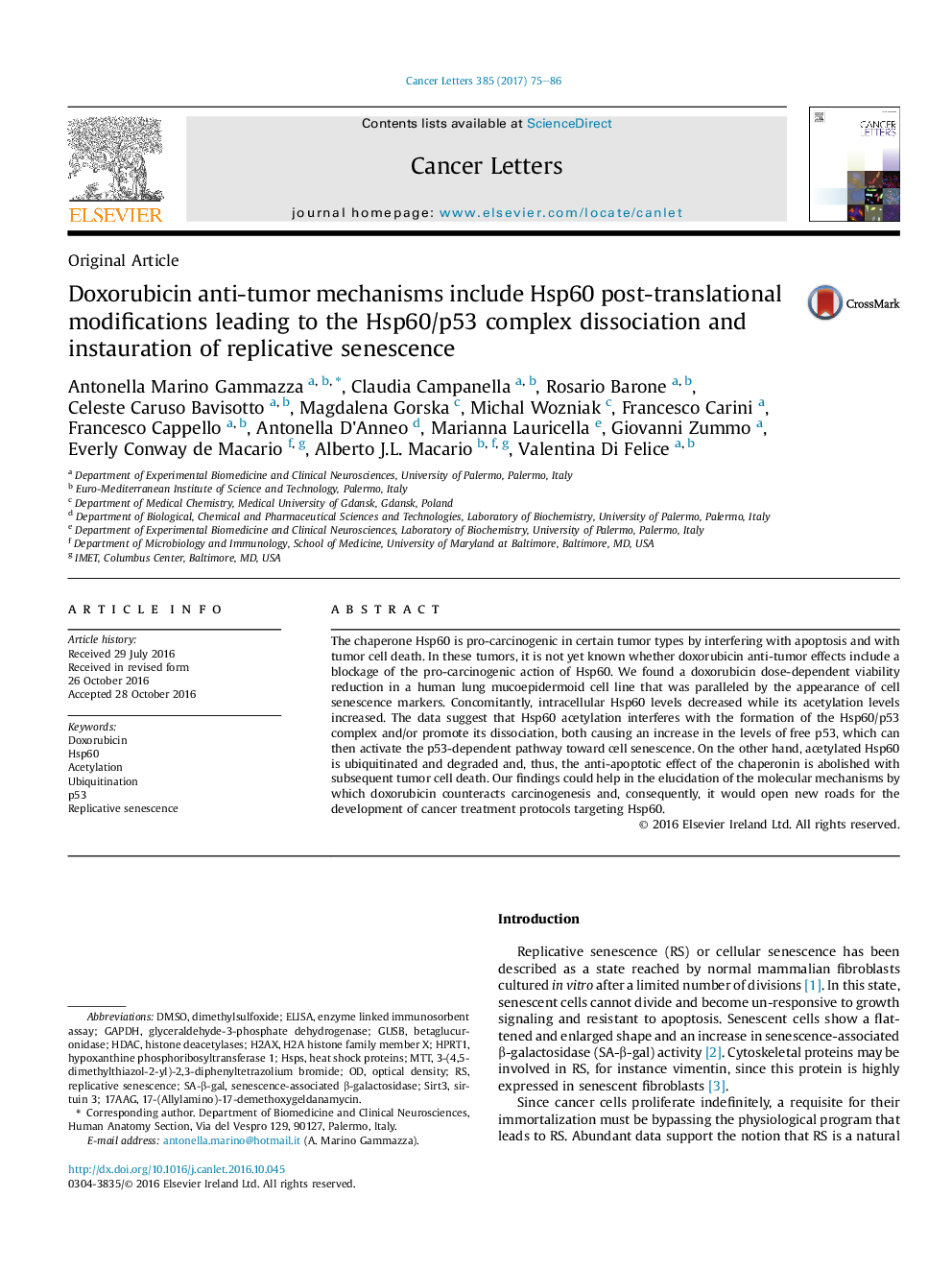| Article ID | Journal | Published Year | Pages | File Type |
|---|---|---|---|---|
| 5525715 | Cancer Letters | 2017 | 12 Pages |
â¢Low doxorubicin doses induce replicative senescence in human lung mucoepidermoid carcinoma cells.â¢Cells treated with doxorubicin show a reduction of Hsp60 levels and an increase in its acetylation.â¢Hsp60 acetylation may induce the destabilization of the pro-tumor Hsp60/p53 complex in these cells.â¢p53 may exert its tumor suppressive function by activating p53-dependent cell senescence pathway via the induction of p21.
The chaperone Hsp60 is pro-carcinogenic in certain tumor types by interfering with apoptosis and with tumor cell death. In these tumors, it is not yet known whether doxorubicin anti-tumor effects include a blockage of the pro-carcinogenic action of Hsp60. We found a doxorubicin dose-dependent viability reduction in a human lung mucoepidermoid cell line that was paralleled by the appearance of cell senescence markers. Concomitantly, intracellular Hsp60 levels decreased while its acetylation levels increased. The data suggest that Hsp60 acetylation interferes with the formation of the Hsp60/p53 complex and/or promote its dissociation, both causing an increase in the levels of free p53, which can then activate the p53-dependent pathway toward cell senescence. On the other hand, acetylated Hsp60 is ubiquitinated and degraded and, thus, the anti-apoptotic effect of the chaperonin is abolished with subsequent tumor cell death. Our findings could help in the elucidation of the molecular mechanisms by which doxorubicin counteracts carcinogenesis and, consequently, it would open new roads for the development of cancer treatment protocols targeting Hsp60.
